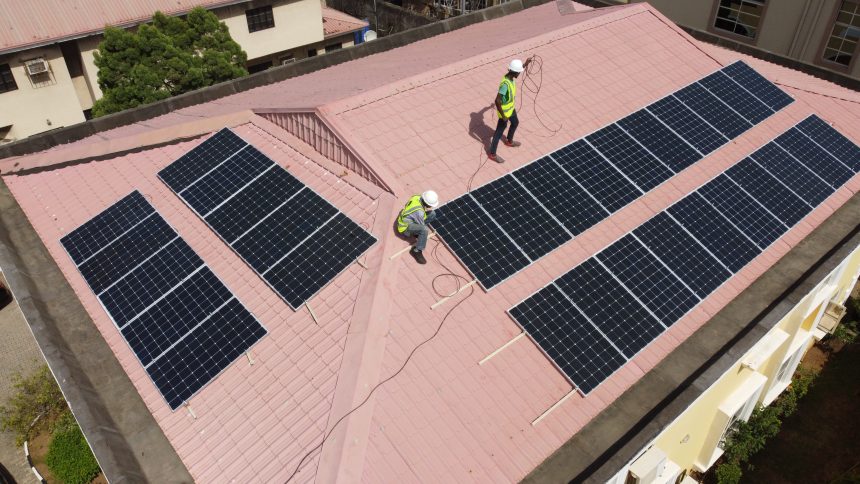ica, a renewable energy company that provides quality energy access through Solar PV, Grids, Batteries, and Innovation, has today announced the launch of their – a groundbreaking approach that consists of a community that is designed with a whole systems thinking approach to offset more greenhouse gases (GHG) than it produces.
The first of its kind from an African solar company, NZVs improve the quality of life of community dwellers whilst simultaneously improving energy access.
Within each NZV, you will find many innovative technologies for affordable, clean and quality energy access such as Solar Mesh-Grids, Mini-Grids, Battery Hubs, So-Cool Systems, and E-mobility solutions. These features make NZVs very attractive as they will have a positive impact on Africa.
Energy Access Impact
With over 500 million people globally lacking access to energy, NZVs will be able to solve this problem by developing the right renewable energy mix to provide clean, reliable and affordable energy. (Energy efficiency, Green Building). The readiness of infrastructure will allow the use of EVs, as E-mobility is a growing trend in Africa.
Climate Change Impact
The scientific consensus shows that net zero is required to avoid the worst impacts of global warming. In the 2015 Paris Agreement, all 196 UN member states committed to net zero. The IPCC, the United Nations body for assessing the science of climate change, concluded the need for the world to achieve net zero CO2 by 2050, with a 45% reduction in emissions by 2030, to remain consistent with 1.5°C of warming.
Africa is said to be the smallest contributor to climate change, however, initiatives like NZVs will ensure it is able to keep this status whilst meeting its social needs.
Social Impact
NZVs are projected to provide a significant amount of employment opportunities to communities in Africa. The first NZV will provide over 112 new job opportunities for its respective community. More women will be able to get an education as they will spend less time searching for energy.
Speaking on the launch of the Net-Zero Villages, Dr. Patrick Agese, CEO at PAM Africa, says “Over 80 Million Nigerians do not currently have access to energy and because of this 45% of goods are lost due to a lack of refrigeration, but today, we’re empowering people to drive us closer to a future where energy across the country is 100% renewable, reliable and accessible.”

“This has consistently been Nigeria’s most critical challenge and now more than ever, we need a sustainable approach to tackle this head on, not only for the benefit of local Nigerians, but also the health of our planet. At PAM Africa, we firmly believe the answer lies in Net-Zero Villages and during a time where Nigerians are facing a difficult economic period, we’re proud to be the first solar company in Africa forging a new path for investment in what involves the integration of various state-of-the-art energy technologies.”
Founded in 2021, PAM Africa delivers reliable and sustainable energy services for businesses and residents across Nigeria, improving people’s lives with quality energy access. Leveraging its local and international engineering and customer support teams, it is the only African solar company with advanced energy innovations developed by PhD experts.
PAM Africa boasts of leading partnerships with multinational organisations including Se4all, All-On, Hauts-de-france, EDF Energy, UK Research and Innovation USADF, .
To date, PAM Africa has delivered 0.5MW+ of installed capacity and 2MWh+ of storage capacity across Nigeria. With more funding, PAM Africa aims to develop 200 NZVs by 2030, creating 20,000 new Jobs for rural dwellers and off-setting 56,700 Tonnes of GHG (Greenhouse Gases). Net Zero Villages (NZV) are the best way to provide energy and industrialization to communities in Africa whilst considering the climate crisis, solving a lot of problems in African communities including food, water, transport, energy and security. Hence providing a direct approach to rural industrialization.
PAM Africa has developed a White Paper on its NZVs. Read the white paper .










